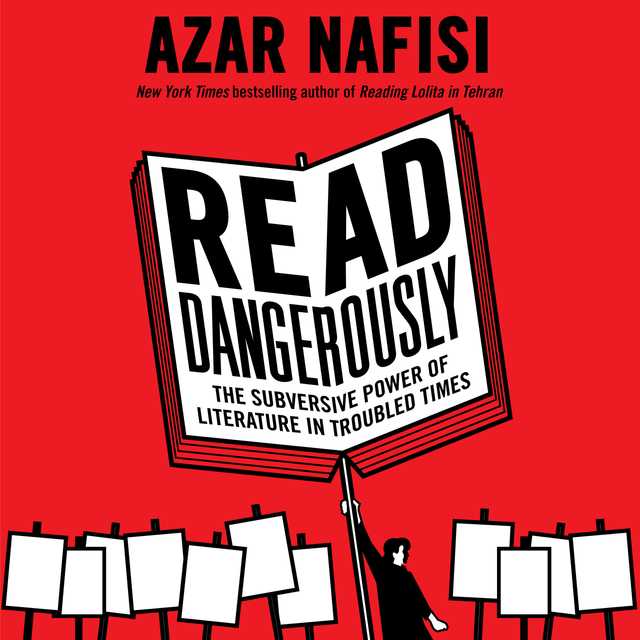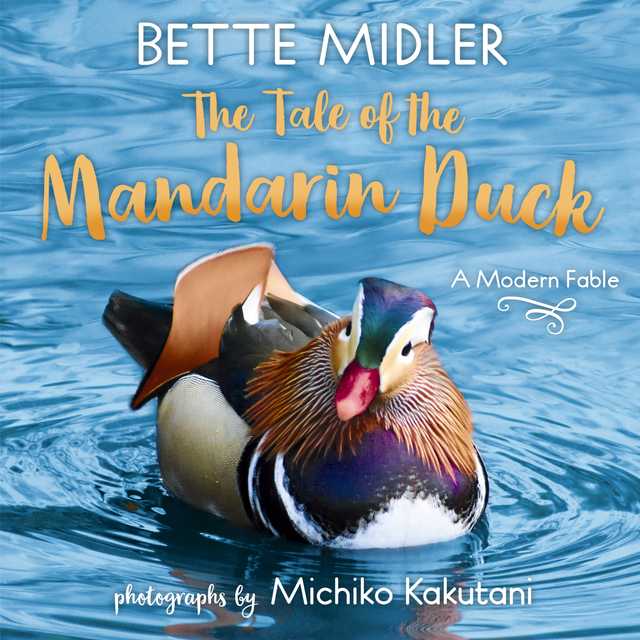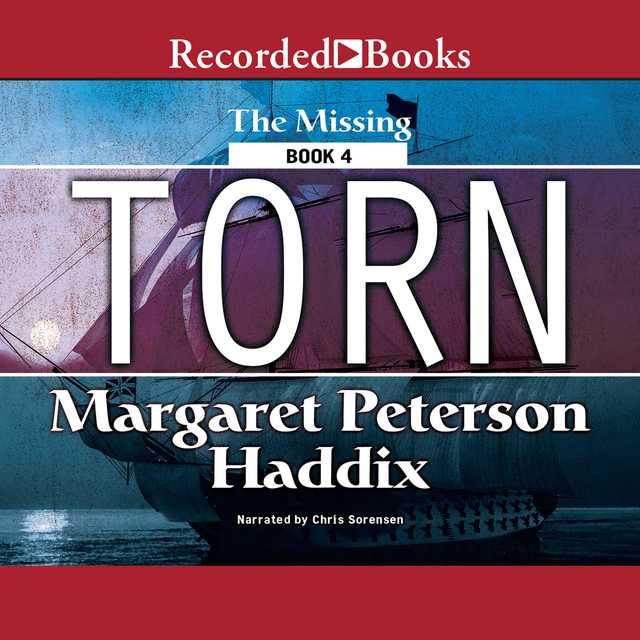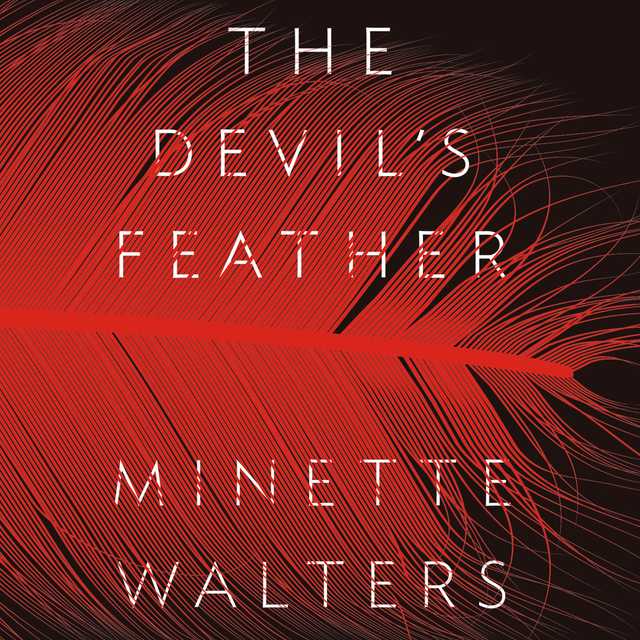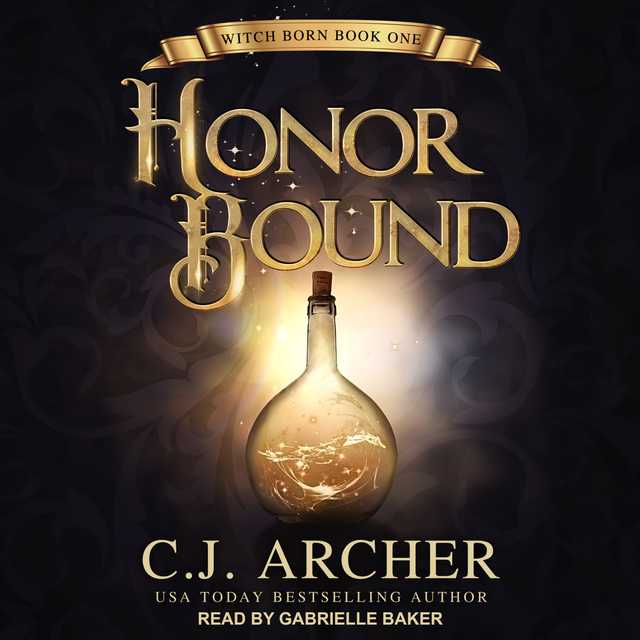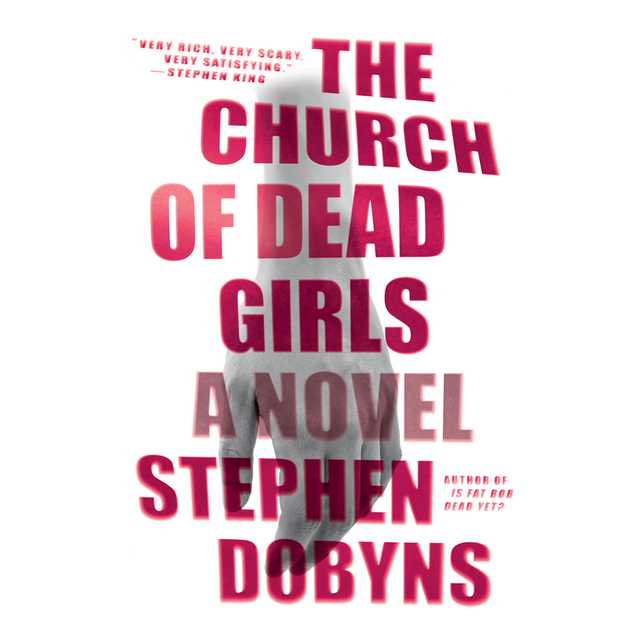Read Dangerously Audiobook Summary
The New York Times bestselling author of Reading Lolita in Tehran returns with a guide to the power of literature in turbulent times, arming readers with a resistance reading list, ranging from James Baldwin to Zora Neale Hurston to Margaret Atwood.
“[A] stunning look at the power of reading. … Provokes and inspires at every turn.” —Publishers Weekly (starred review)
What is the role of literature in an era when one political party wages continual war on writers and the press? What is the connection between political strife in our daily lives, and the way we meet our enemies on the page in fiction? How can literature, through its free exchange, affect politics?
In this galvanizing guide to literature as resistance, Nafisi seeks to answer these questions. Drawing on her experiences as a woman and voracious reader living in the Islamic Republic of Iran, her life as an immigrant in the United States, and her role as literature professor in both countries, she crafts an argument for why, in a genuine democracy, we must engage with the enemy, and how literature can be a vehicle for doing so.
Structured as a series of letters to her father, who taught her as a child about how literature can rescue us in times of trauma, Nafisi explores the most probing questions of our time through the works of Toni Morrison, Salman Rushdie, James Baldwin, Margaret Atwood, and more.
Supplemental enhancement PDF accompanies the audiobook.
Other Top Audiobooks
Read Dangerously Audiobook Narrator
Azar Nafisi is the narrator of Read Dangerously audiobook that was written by Azar Nafisi
AZAR NAFISI is the author of the multi-award-winning New York Times bestseller Reading Lolita in Tehran, as well as Things I’ve Been Silent About, The Republic of Imagination, and That Other World. Formerly a Fellow at Johns Hopkins University’s Foreign Policy Institute, she has taught at Oxford and several universities in Tehran. She lives in Washington, D.C.
About the Author(s) of Read Dangerously
Azar Nafisi is the author of Read Dangerously
More From the Same
Read Dangerously Full Details
| Narrator | Azar Nafisi |
| Length | 8 hours 28 minutes |
| Author | Azar Nafisi |
| Category | |
| Publisher | HarperAudio |
| Release date | March 08, 2022 |
| ISBN | 9780062947390 |
Subjects
The publisher of the Read Dangerously is HarperAudio. includes the following subjects: The BISAC Subject Code is Books & Reading, Literary Criticism
Additional info
The publisher of the Read Dangerously is HarperAudio. The imprint is HarperAudio. It is supplied by HarperAudio. The ISBN-13 is 9780062947390.
Global Availability
This book is only available in the United States.
Goodreads Reviews
Gerhard
January 25, 2023
'Readers, of course, have no formal organization to promote truth, to bring about change. But they number in the billions. They range across the spectrums of profession, background, gender, race, ethnicity, religious affiliation. Collectively, their power would be immense. Every writer who is censored, jailed, or tortured and murdered; every reader who is deprived of reading the books she wants; every bookstore, library, museum, or theater that closes; every book that is censored or removed from schools and libraries; every art, music, or literature program canceled in our schools and other institutions—these should all remind us of our responsibility.'Review to follow.
Sharon
August 13, 2022
5+++stars. A MUST READ.Azar Nafisi has written an incredible book that is composed of five chapters about critical authors. These chapters are written as letters to her deceased father who was jailed in Iran for standing up for his beliefs. Nafisi and her father shared a love of literature and freedom of expression and art.The first chapter is about authors Rushdie, Plato and Bradbury. Last night on August 13, 2022 after I had completed the first chapter, the news was announced that Salman Rushdie was stabbed and attacked onstage during a panel interview. He is currently in the hospital and may lose one eye and an arm and his liver have been damaged.In 1989, Ayatollah Khomeini issued a fatwa ordering Rushdie's execution because he felt Rushdie's book, The Satanic Verses, was blasphemous. In addition to the evening news about Rushdie, there was conflicting news about whether Donald Trump would have turned over highly classified information that he took to his Mar-Lago residence if he had "just been asked" or if he was asked and received a subpoena several days in advance. The newscasters also indicated that there is concern/talk about whether the US is headed to a civil war in the future. There was discussion about the "election deniers" who are making progress in current election campaigns in several states. Election deniers are those who feel Trump won the election but it was stolen from him.Yesterday, Ricky Walter Shiffer, an armed man, tried to enter the Cincinnati FBI office and was killed after a standoff with police.Book banning at schools, libraries and bookstores has exploded across the country.....so reading Nafisi's book was incredibly timely and thought provoking.Read Dangerously shares parallels between the Islamic Republic of Iran and the United States. Nafisi has lived in both countries and transparently shares historical and current context of both countries, particularly on topics of exclusion (race, gender, religion, politics, etc).The quotes at the beginning and the end of the book highlight the role and intersectionality that writers and readers play in changing the world."Create dangerously, for people who read dangerously. This is what I've always thought it meant to be a writer. Writing, knowing in part that no matter how trivial your words may seem, someday, somewhere, someone may risk his or her life to read them." Edwidge Danticat"Readers are born free and they ought to remain free." Vladimir Nabokov The authors that are highlighted and discussed in each letter (chapter) to her father are:1. Rushdie, Plato, Bradbury2. Hurston, Morrison3. Grossman, Ackerman, Khoury4. Atwood5. Baldwin, CoatesNafisi shares that the world knows a lot about America but America doesn't know much about the world. Americans wear our ignorance of the world casually and good naturedly. Author James Baldwin stated that indifference makes one blind.America pays little attention to writers and we avoid reading dangerously. Reading fosters a mindset that questions and doubts. Fiction arouses our curiosity and our imaginations. Reading dangerously teaches us how to deal with those viewed as enemies. Democracy depends on engagement with our adversaries. Censorship is dangerous to the well-being of societies. When we stop reading, we pave the way for book banning. Different opinions and perspectives are critical for understanding and empathy. I highly, highly recommend Reading Dangerously. It links writers and readers to the universality of the human experience.
Elyse
February 04, 2023
Audiobook….read by Azar Nafisi ….8 hours and 28 minutes Incredibly powerful!!!Azar’s outrage for freedom of expression is not only emotionally felt — from ‘her’ —but her outrage-passion is contagious….Readers will feel a desire to stand up - rise up - and be an advocate for real change and justice in the world. The intensity in Azar’s voice - is quite animated….At times I felt I was a fly on the wall listening to Azar having a private conversation with her Father … through letters they exchanged. The stories were personal - the politics is vital….. drawing on Azar’s experience from living in Iran and the United States. The difference he made in her life is remarkable. Having read three other books by the author years ago — I didn’t expect THIS.,,,, a whole new ballgame from her past work. “Reading and writing, has protected me through the worst times of my life”. Through loneliness, doubt, and anxiety….reading, and writing, has been my savior”.
Madeline
June 16, 2022
“Great fiction is based on a democracy of different perspectives, where even the villain has a voice, while bad fiction reduces all voices to one voice: that of the writer who, like a dictator, stifles all of the characters in order to impose his message or agenda. Great works of literature, works that are truly dangerous, question and expose that dictatorial impulse.”Alright, brief standing ovation for Nafisi... put your phone down, get up, and clap because this book was outstanding. The deeply intelligent writing, universal sentiments of human experience, and the deconstruction of modern and historical events through literature made for a truly enlightening reading experience. Nafisi is fearless in combatting popular political narratives, taking fear, totalitarianism, populism, dehumanization, sexism, and binary thinking and placing them under a microscope for examination. Through a series of letters to her father (who was a badass politician in Iran, jailed for opposing the Islamic regime by providing support to protestors), Nafisi utilizes various works of literature to make sense of the rise of totalitarianism, drawing frightening parallels between the rise of the Islamic regime in Iran and the anti-truth Trump Era that continues to grip the United States. She also builds one of the strongest cases for intersectional feminism I’ve ever read, methodically demonstrating the deep sexism that exists within nearly all political movements and the exclusion of women, especially women of color. She discusses the Israel-Palestine conflict in a way that rejects political stance, instead using the conflict to analyze the dehumanization of war time, our drive for revenge, the pain we inflict on others when we are in pain... Given my own understanding of the issue, I was a little wary when she started talking about the beauties of Israeli literature on war, but she quickly turned the mirror onto me, forcing me to reflect on my own impulses when thinking about war and violence. Honestly, superb. This entire book is such a beautiful meditation on why we should ultimately seek peace and forgiveness, resist binary thought processes, protect the writers and creatives of society, and READ. ⭐️⭐️⭐️⭐️⭐️⭐️ (6 stars for Nafisi) Other quotes I liked, but honestly just check my reading activity, this book is a jewel box: “The most seductive aspect of a totalitarian society is the security it offers. The truth is uncomfortable and a dictator promises an abdication of responsibility from it.”“What choice does the king have but to kick the poets and storytellers out of his republic? And what choice does the poet have but to destabilize the philosopher king’s power by speaking the truth?”
Deb (Readerbuzz)
July 03, 2022
Azar Nafisi writes letters to her father, with whom she often discussed literature when he was alive, about the power of controversial reading and its benefits for the individual and society. Nafisi writes during a time of great turbulence in her adopted country, America, and draws upon her struggles during a time of great turbulence in her home country, Iran.
Karmen
November 22, 2022
4,5Volumul semnat de Azar Nafisi este compus din cinci scrisori imaginare către Baba Jan, tatăl său, pornește de la protestele din Iran și se încheie cu cele din America. Trece rând pe rând prin texte ale unor scriitori și gânditori pe care Nafisi îi apreciază pentru forța, frumusețea și mesajele textelor: Salman Rushdie, Platon, Ray Bradbury, Toni Morrison, Zora Neale Hurston, David Grossman, Elliot Ackerman, Raymon Khouri, Margaret Atwood, James Baldwin și Joyce Carol Oates.Cărţile sunt înainte de toate paznicii memoriei noastre, dar încă primele pagini ale cărții, Azar Nafisi ține să sublinieze faptul că scriitori nu sunt infailibili, ci, de cele mai multe ori, produse ale epocii în care scriu. Și chiar dacă literatura nu duce la acțiune directă în plan politic, social, educațional, ea are cu siguranță puterea de a stârni curiozitatea, de a încuraja mentalitatea în care punem la îndoială lucrurile, ne întrebăm, ceea ce face din citit și scris acțiuni periculoase uneori, dar ne și protejează de singurătate sau neliniști. Analizând o serie de cărți care au reușit să modifice fie mentalități, fie să ducă la acțiune efectivă în lumea reală, se oprește într-unul dintre capitole la binecunoscutul Fahrenheit 451, prilej cu care își exprimă opinia asupra rolului major al cărților. ”Ele reprezintă lumea neînregimentată, plină de contradicții și complicații, o lume care amenință mentalitatea totalitaristă prin faptul că de află dincolo de controlul ei. (pg. 53)Misiunea ficțiunii nu e să producă mesaje sau manifeste, s-ar transforma în ideologie, ci să-i pună pe cititori față în față cu experiențe individuale, care să le dea posibilitatea de a dezvolta empatie și înțelegere. Are marele dar de a ne reda individualitatea atunci când lipește sau ne-a fost anihilată, ne a se stimula imaginația și chiar de a deveni mijloc de protest atunci când trăim perioade tulburi. ”Marea literatură se inspiră din umanitatea noastră împărtășită și pune în evidență diferențele dintre noi.” Scriitorii nu doar spun povești, ci fac să luăm parte la ele. Și deși nu pot salva pe nimeni, magia relațiilor dintre cititori și cuvinte poate transforma cititorii în salvatori cărților.
Mark
June 03, 2022
Read Dangerously: The Subversive Power of Literature in Troubled TimesAuthor: Azar NafisiPublisher: Dey St. - William MorrowPublishing Date: 2022Pgs: 223Dewey: 809-n146rDisposition: Irving Public Library - South Campus - Irving, TX=======================================REVIEW MAY CONTAIN SPOILERSSummary:What is the role of literature in an era when one political party wages continual war on writers and the press? What is the connection between political strife in our daily lives, and the way we meet our enemies on the page in fiction? How can literature, through its free exchange, affect politics?In this galvanizing guide to literature as resistance, Nafisi seeks to answer these questions. Drawing on her experiences as a woman and voracious reader living in the Islamic Republic of Iran, her life as an immigrant in the United States, and her role as literature professor in both countries, she crafts an argument for why, in a genuine democracy, we must engage with the enemy, and how literature can be a vehicle for doing so.Structured as a series of letters to her father, who taught her as a child about how literature can rescue us in times of trauma, Nafisi explores the most probing questions of our time through the works of Toni Morrison, Salman Rushdie, James Baldwin, Margaret Atwood, and more. _________________________________________Genre:PoliticsPolitical LiteratureCriticismSocietyCultureHistoryIranAmericaThe WorldCensorshipThoughtPolitical ThoughtLiberal Political ThoughtForgivenessWarWhy this book:In the current straits, thought keeps you off the rocks and shoals. Read…because they don’t want you to. _________________________________________The Page 100 Test: √ ◄ - good to go.🧠◄ - makes you think$ ◄ - this is money.The Feel:This touches on the works of other authors and brings their most “dangerous” qualities to life in these pages. I’m invested in Nafisi’s story, but I’m curious about some of these others that are brought up as well.Favorite Character:James Baldwin when his work is discussed here rapidly became a favorite.Least Favorite Character:College friend from Oklahoma University, Dan, whose favorite author is Ayn Rand. I already don’t like this guy. Wonder if he’s in Congress today? :/ Favorite Quote:This era is overwhelmed by violence both in rhetoric and reality communicating not through inclusion but elimination. Adversaries and opponents are now reduced to and defined as enemies.We enter dangerous territory when we blur the lines between fiction and reality, or weaponize fiction to further an agenda–be it political, religious, or personal. The totalitarian mindset breaks the borders between fiction and reality, and, in the same manner, it imposes its own fictions and mythologies on the realities of its people, speaking and acting on their behalf. You see this mindset not only in authoritarian countries but also in democracies–the most obvious in America being Trump’s replacing reality with his lies and illusions. [There is] “a heavy price to pay for mischief.”“Rather sad that the world knows so much about America, while America knows so little about the world.”“Race is the child of racism, not the father” - James Baldwin“[they both believed] the writer should be free to demolish the barrier of color, to cross the forbidden line and write from the point of view of someone with a different skin.” - William Styron in remembrance of James Baldwin from the New York Times. The mutual respect of the two men aborning in Baldwin’s coming to Styron’s defense after the latter wrote The Confessions of Nat Turner. Baldwin said of Styron that “[he] had a right to a confrontation with his history. No one has a right to tell a writer what to write.” I would just add that if you don't like it, don't read it. The writer is the one bleeding on the page. It’s their blood, their soul. Sit in judgment if you must, but karma is a bitch. This is the essence of freedom of speech to me. Yes, you have the freedom to speak it, but I have the freedom not to listen or to turn the volume down and let you scream into the abyss. Baldwin believed “we are all adnrogynous, not only because we are all born of a woman impregnated by the seed of man but because each of us, helplessly and forever, contains the other–male in female, female in male, white in black, and black in white. We are a part of each other.” Powerful stuff. Favorite Concept:Dignity, self-revelation, and the virtue of being mulish.The exploration of race, race relations, and the juxtaposition of Iran and America embodied here is fascinating. Book makes me consider the protests in America. The outraged soul takes to the streets demanding justice. The outrage fades. It’s still there, but everyday life is beating us. The media fans the flame until they have something to move on to. The exhausted soul just tries to get through the next day. “Normality” returns. The next outrage occurs, but nothing was done to truly address the previous outrage. Maybe if we had votes of no confidence in this country that gave more power to the people. Imagine Presidents trying to form new governments less they fall out of power in the offseason. The stagnant system robs people of their power. A power that can only be expressed during election season. This is why The Powers That Be fear making it easier to vote. Talking about Baldwin and Coates belief that there is no biological basis to race, and that white and Black are political constructs, a ploy created to ensure the subjugation of one group of people by another. …I take that along into the same headspace with Lyndon Johnson’s quote - “If you can convince the lowest white man he's better than the best colored man, he won't notice you're picking his pocket. Hell, give him somebody to look down on, and he'll empty his pockets for you.” Those ideas living together in my psyche make me thoughtful about all those aspects. And horrified as I look out my window at the America we have now. When Baldwin refers to white people as “our striken kinfolk”, I feel that. His commentary when he said that racism harms both the victim and the perpetrator. Hmm Moments:“Don't you think that there is a moment in most political upheavals when people lose their individual voices and become one when a sort of blindness takes over their faculties, and that is the decisive moment that can allow a tyrannical mindset to take over.” … …well that’s horrifying.As she talks about Ora from “To The End Of The Land” and her obsession with not being home when the military notifiers come to tell her that her son has perished in war because if she's not then he can't be dead. This percolates thru my brain as a Schrodinger. Calling the Ball: Finding it difficult to read A Handmaid's Take seems a universal experience. Not because it’s bad. More because of the fear…or sobering reality that it’s not as far fetched as we’d all like to believe.Wisdom:“Each is responsible for the atrocities but is not equated with them.” We forget this. We blame. We vilify. We stereotype. Juxtaposition:The author on living in Iran - “...religion was a kind of victim, used and manipulated as a political ideology to maintain the power of the state.” While in the current American political climate, religion is being used as a weapon against everyone who isn’t white, Anglo-Saxon Protestant, and in lockstep with their agenda. “You and I were stunned that so many chose to ignore the ominous signs: the murder and executions, the mistreatment of women and minorities, the replacement of progressive laws with regressive and brutal ones. When the new regime executed the old government officials–or innocent people accused falsely of collaborating with that government–many remained silent, and the majority of political organizations and groups, both inside and outside Iran, including some on the Left, supported the Islamic regime’s actions.” Sounds like Paul Gosar’s America.Plato’s Noble Lie and The Cave are metaphors for modern America. Saul Bellow asked “Who is the Tolstoy of the Zulus, The Proust of the Papuans?” Ralph Wiley’s response, “Tolstoy was the Tolstoy of the Zulus. Unless you find profit in fencing off universal properties of mankind into exclusive tribal ownership.” Wiley reminds us of hte universality of ideas and imagination. Like scientific advances, they might originate at a specific place and tim, but once theta trout there in the world, they belong to the world–or, rather, belong to whoever cares about them, nurtures them, uses them. We need that imagination in order to survive as human beings. Where els but through imagination and ideas do we connect even with those we have never met in our lives?Erstwhile:The reminder that One Thousand and One Arabian Nights are told to save Scheherazade’s life from the virgin killer king who marries a new wife every night and kills them at dawn to keep her from ever betraying him. And after telling him 2 ¾ years worth of stories, he chose to let her live and be his queen. ⸮…what a prize⸮ The lead is buried whenever one of us gets nostalgic about any of this story. Course same could be said about many of our fairy tales when we look too closely at them and passed their Disneyfication. The Unexpected:Through this Iranian woman’s literature criticism, review, and love affair, I confronted myself, my past, our shared past, James Baldwin, Ta-Nehisi Coates, and America. Good stuff.The Poker Game/DND Table:Imagining a poker game with Baldwin, Plato, and her father. The discussion around the table would lead to forgotten cards and introspection.She could sit at my poker or DND table. It’d be fun.Movies and Television:I’ve gotta track down that mentioned biography of James Baldwin. _________________________________________Pacing:For Non -Fiction, there was real flow to this. Page to page, sometimes in a blur, having to stop to think and consider the nuggets throughout. Last Page Sound:Thought-provoking. When I said that about the book, I failed to realize how thought-provoking it would actually be. Totally caught off guard by this book. I expected political criticism and talk, but the chapters on Baldwin and Coates are so enlightening. Conclusions I’ve Drawn:Based on Nafisi, I believe I would enjoy being challenged by…I mean reading James Baldwin and Ta-Nehisi Coates. Their work is going on my TBR list.Reread Pile: Doubt I’d re-read this. But I may get a copy to keep on my bookshelf to reference from time to time. It was damned good. And who knows, another political season is coming.=======================================
Lorri
January 10, 2022
Read Dangerously, presented as a series of letters the author has written to her father, analyzes a number of well-known, diverse works of fiction, showing us how literature helps us understand and confront societal challenges. In literature, Nafisi teaches, we wage wars against tyranny, racism, closed- mindedness, and despair, and in literature we find the tools to construct a better world. Nafisi’s selection of authors include powerhouses ranging from Salman Rushdie to Margaret Atwood and from James Baldwin to David Grossman, to name but a few. I will keep this book and refer to it again and again. It has inspired me to select and read books more mindfully.@DeyStreetBooks
Jan
May 14, 2022
Reading dangerous books does not necessarily mean that they've been banned by some uptight school officials. It could simply mean that the books make you think in a different way than most of your unquestioning society. Iranian American writer Azar Nifisi, whose Reading Lolita in Tehran I loved, has ended a quartet of books with Read Dangerously: The Power of Subversive Literature In Troubled Times and now I want to read all of them.Written as letters to her deceased father, Nifisi discusses eleven writers with a focus on one or two of their great books. I've read most of the authors and the books, which includes Ray Bradbury, Toni Morrison, Margaret Atwood, Salman Rushdie, Zora Neale Hurston, James Baldwin, and more.One author and book I hadn't heard of is David Grossman. His book To the End of the Land is being held for me at my public library. Let me tell you about it as an example of her subversive books.It's structured similarly to One Thousand Nights where a new queen keeps telling the king fascinating stories that connect with each other so he will not kill her in the morning as he has done with his previous wives. In Grossman's novel a mother keeps telling stories to her ex-husband so their soldier son will stay alive for them. What's so dangerous about it is that the enemy in the son's Palestine-Israel war is not dehumanized because that would dehumanize the son. I'd love to chat about the other books, but if Grossman's book doesn't intrigue you, then you better pass on Nifisi's wonderfully subversive book. I was absorbed in it from beginning to end. It was written from 2019 to 2021, I believe, and she compares her two home countries with much feeling.I hope you'll enjoy her books!
Greg
May 19, 2022
Reading Dangerously Written as a series of letters to her deceased father during the final year of the Trump term, this powerful book explores the influence that great fiction has on its readership during troubled times. Each letter focuses primarily on several writers (except for the disturbing one that solely examines Margaret Atwood’s The Handmaid’s Tale) exploring the message to be gleaned by the thoughtful reader. Well crafted books are often disturbing to the empathetic, or for the young reader, it may help the development of empathy, such an important trait for a compassionate humanity. This created disturbance creates a tension in a society dominated by despotism. Such totalitarian leadership desires that its subjects not think independently. Disturbing books are a danger to the state and must be forbidden. This primary thesis for this book certainly disturbed me as I observe the attempts being made around the country now to limit what should be read and discussed in our schools. Our children should not be disturbed? Or are we saying that they should not be encouraged to think independently? As this book indicates, such restrictions are a precursor to totalitarianism. It certainly betrays the promise upon which this nation was founded. Bottom line: read this book.
Barbara
May 10, 2022
Not traditional literary essays, but a series of letters written to Nafisi’s father about the subversive power of literature.“Create dangerously, for people who read dangerously,” the author quotes Edwidge Danticat in her book’s epigraph. Often Nafisi compares and contrasts the regime in Iran to modern America: “In Iran, like all totalitarian states, the regime pays too much attention to poets and writers, harassing, jailing, and even killing them. The problem in America is too little attention is paid to them” and we become indifferent. For me, the most powerful part of the book is when Nafisi tells us that we “have lost the art of engaging with the opposition.” Indeed, recent events have left us simply screaming at each other.“This is where reading dangerously comes in: it teaches us how to deal with the enemy…Democracy depends upon engagement with our adversaries and opponents. It depends upon us being made to think, and rethink, assess and reassess our own positions, face both the enemies outside of us and the ones within.” I’d love to have a club/discussion/debate/class with the books she uses for these essays.
Joyce
March 02, 2022
I received a copy of this book in a Goodreads Giveaway. I have not read any of the earlier works by Azar Nafisi, but this was a good place to start. She uses the construct of letters to her late father in which she explores various great novels to gain a clearer understanding of what she has been experiencing in Washington DC as an Iranian American during COVID and the troubling years of late 2019 to 2020. She also utilizes the literature to illuminate her own and her father's history in Iran. Her reflections are interesting and thought-provoking. It is rather chilling to see the comparisons between Iran and the US. I will definitely plan to read or re-read many of the novels mentioned, with an eye to reading more dangerously. It would probably be more meaningful to read this book with good familiarity with the works cited.
Most Popular Audiobooks
Frequently asked questions
Listening to audiobooks not only easy, it is also very convenient. You can listen to audiobooks on almost every device. From your laptop to your smart phone or even a smart speaker like Apple HomePod or even Alexa. Here’s how you can get started listening to audiobooks.
- 1. Download your favorite audiobook app such as Speechify.
- 2. Sign up for an account.
- 3. Browse the library for the best audiobooks and select the first one for free
- 4. Download the audiobook file to your device
- 5. Open the Speechify audiobook app and select the audiobook you want to listen to.
- 6. Adjust the playback speed and other settings to your preference.
- 7. Press play and enjoy!
While you can listen to the bestsellers on almost any device, and preferences may vary, generally smart phones are offer the most convenience factor. You could be working out, grocery shopping, or even watching your dog in the dog park on a Saturday morning.
However, most audiobook apps work across multiple devices so you can pick up that riveting new Stephen King book you started at the dog park, back on your laptop when you get back home.
Speechify is one of the best apps for audiobooks. The pricing structure is the most competitive in the market and the app is easy to use. It features the best sellers and award winning authors. Listen to your favorite books or discover new ones and listen to real voice actors read to you. Getting started is easy, the first book is free.
Research showcasing the brain health benefits of reading on a regular basis is wide-ranging and undeniable. However, research comparing the benefits of reading vs listening is much more sparse. According to professor of psychology and author Dr. Kristen Willeumier, though, there is good reason to believe that the reading experience provided by audiobooks offers many of the same brain benefits as reading a physical book.
Audiobooks are recordings of books that are read aloud by a professional voice actor. The recordings are typically available for purchase and download in digital formats such as MP3, WMA, or AAC. They can also be streamed from online services like Speechify, Audible, AppleBooks, or Spotify.
You simply download the app onto your smart phone, create your account, and in Speechify, you can choose your first book, from our vast library of best-sellers and classics, to read for free.
Audiobooks, like real books can add up over time. Here’s where you can listen to audiobooks for free. Speechify let’s you read your first best seller for free. Apart from that, we have a vast selection of free audiobooks that you can enjoy. Get the same rich experience no matter if the book was free or not.
It depends. Yes, there are free audiobooks and paid audiobooks. Speechify offers a blend of both!
It varies. The easiest way depends on a few things. The app and service you use, which device, and platform. Speechify is the easiest way to listen to audiobooks. Downloading the app is quick. It is not a large app and does not eat up space on your iPhone or Android device.
Listening to audiobooks on your smart phone, with Speechify, is the easiest way to listen to audiobooks.

